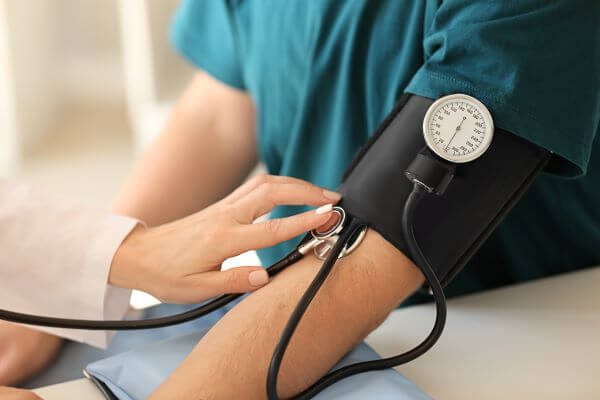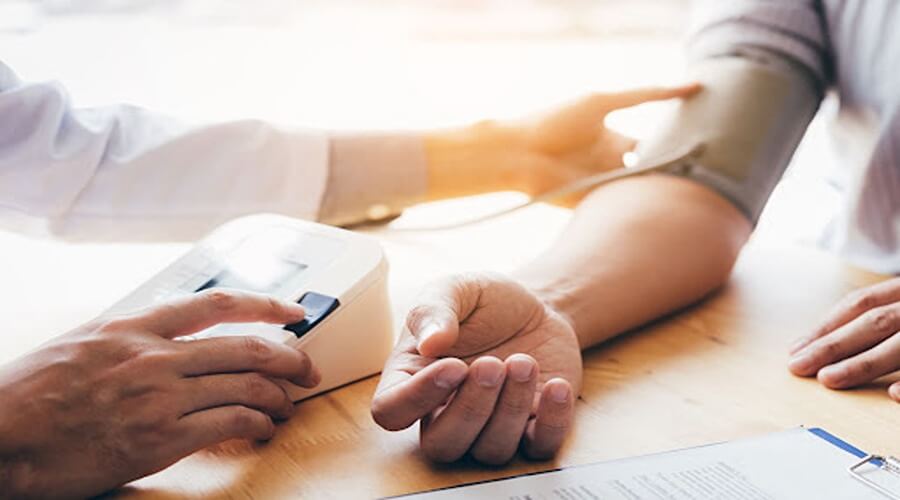Highlights
- Hypercholesterolemia, also called high (or elevated) cholesterol, is an unusually high number of low-density lipoproteins (LDL) in the blood.
- Hypercholesterolemia raises the risk of heart attack and stroke.
- While hypercholesterolemia has no direct symptoms, there are some secondary symptoms to be aware of.
- Lifestyle changes, dietary change, and medication are the best ways to control hypercholesterolemia.
Hypercholesterolemia, also called simply high or elevated cholesterol, is an abnormally high number of low-density lipoproteins (LDL) in the blood. While high-density lipoproteins (HDL) are generally considered protective, a high LDL level can raise the risk of heart disease and stroke.
It’s not possible, or even recommended, to eliminate LDL completely. Cholesterol is used in multiple beneficial ways by the body, such as using it to make important hormones. Instead, treatment is focused on reducing LDL to a safer level.
Hypercholesterolemia Causes
Hypercholesterolemia can have any of a number of causes. The first is genetics. While there’s rarely one gene that raises cholesterol in the blood, research has found polygenetic factors, or the interaction of multiple genes, to help explain high cholesterol. Currently, it’s estimated that a family history of hypercholesterolemia — familial lipid syndrome — affects 1 in 250 people.
The food you eat also plays a role in hypercholesterolemia. Current medical guidance suggests that eating a healthy diet — one that’s heavy in whole grains, fruits, vegetables, and healthy fats while limiting red meat and unhealthy fats — is an effective way to lower cholesterol.
Hypercholesterolemia Symptoms

Hypercholesterolemia doesn’t generally present any symptoms. Instead, it tends to have an impact on the body over a long period of time. You likely won’t notice any direct symptoms, even if your cholesterol is extremely high, although complications can arise as we age.
Hypercholesterolemia Diagnosis
LDL and HDL cholesterol are measured through blood tests. Ideally, your LDL cholesterol is 100 mg/dL or below, with a total cholesterol of around 200 mg/dL. Below 130 mg/dL is also considered good, although it could be improved. Anything above that is generally viewed as needing treatment.
These are not hard and fast numbers, however. How your numbers are interpreted and recommended actions will depend on your overall health, age, other medical conditions, and other factors. If you have unusually high cholesterol, you’ll need to talk with your doctor about appropriate ways of reducing it.
Hypercholesterolemia Risk Factors

In addition to possible causes, there are several risk factors to consider as well.
Other Medical Conditions
Hypercholesterolemia can be driven by a number of other medical conditions, including type 2 diabetes, hyperthyroidism, and kidney disease. In some cases, this is because the medications used to treat these conditions can change how fat is metabolized by the body. Ask your doctor about this possibility whenever starting a new medication.
Age
LDL cholesterol will naturally rise with age as liver function decreases. Heavy alcohol consumption can also impact liver function and prevent it from processing LDL.
Smoking
Smoking can reduce your overall HDL cholesterol and alter its chemistry to limit its protective effects, raising your overall risk of cardiovascular disease.
Mental Health
While still being researched, it’s become increasingly clear that mental health factors such as stress and loneliness can impact cholesterol in the blood. While it’s not clear precisely what the mechanism is, the connection is a potential factor to be aware of.
Complications of Hypercholesterolemia
Over a period of years or decades, high LDL cholesterol collects on the walls of your arteries, forming plaques that progressively narrow the vessels. Also called strictures, these narrow places in arteries make it more difficult for the heart to pump blood, raising your blood pressure. Strictures increase your risk of a heart attack.
The plaques can also break off in an artery and form a blockage, cutting off blood supply to the brain and potentially causing a stroke.
Sometimes this process is gradual enough that secondary symptoms may emerge, depending on where the stricture or blockage occurs.
These symptoms can include:
- Temporary loss of vision
- Dizziness
- Balance difficulties
- Temporary speech issues
- Weakness, numbness, or tingling on one side of the body
- Chest pain
- Calf pain while active
- Stomach pain after eating
If you experience any of these symptoms, contact a doctor immediately.
Hypercholesterolemia Treatment
There are several actions you can take to help control high cholesterol.
Lifestyle Changes
Generally speaking, your doctor will recommend that you quit smoking, reduce alcohol consumption, and maintain a healthy weight by staying physically active. All of these will have broader benefits beyond improving your cholesterol.
Diet
Since diet has modest evidence of being a cause as well as a risk factor for hypercholesterolemia, it’s usually recommended to eat more healthy fats, such as olive oil, and to eat a diet naturally low in salt with an emphasis of vegetables, whole grains, and fruit.
Medication
There are several medications available to help manage hypercholesterolemia.
Classes of cholesterol medications include:
- Statins. Statins, including combination pills, are the first-line treatment. They work by inhibiting the enzyme reductase, and are generally available as generic drugs.
- Proprotein convertase subtilisin/kexin type 9 (PCSK9) inhibitors. PCSK9 inhibitors are currently available only as injectable medication and are only used when cholesterol is very high as it can dramatically reduce it.
- Adenosine triphosphate-citrate lyase (ACL) inhibitors. ACL inhibitors are used in combination with statins and prevent cholesterol processing in the liver.
- Angiopoietin-like 3 (ANGPTL3) inhibitors. ANGPTL3 inhibitors prevent lipid metabolism, helping to prevent plaques.
- Cholesterol absorption inhibitors (CAI medications). CAIs increase HDL, keeping LDL out of blood volume.
- Bile acid sequestrants. These bind with bile in the colon, preventing breakdown of dietary cholesterol and it entering the blood.
- Fibrates. Also called fibric acid derivatives, fibrates are useful for people who also have a high trigylceride level.
- Niacin. Niacin is not generally used due to its side effects, such as vasodilation, but may be considered in some situations.
All these medications have different side effects, interactions, and other data you should be aware of before taking them.
Get the Lowest Price for Cholesterol Medication With BidRX
BidRx can get you the lowest price for cholesterol medications. Find your medications and create a bid today so pharmacies around the country will compete for your business, allowing you to fill your prescriptions at the lowest possible price.
